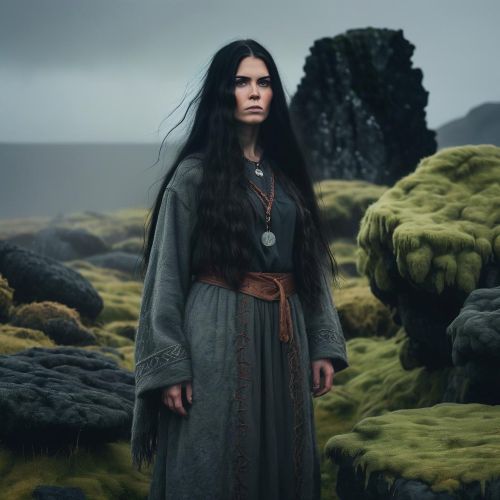Icelandic Mythology
Icelandic mythology is a fascinating blend of Norse heritage and uniquely Icelandic folklore that developed over centuries in one of the most dramatic landscapes in the world. While the Poetic Edda and Prose Edda preserved the broader Norse myths of Odin, Thor, and Freyja, Icelandic mythology also evolved through local traditions that reflected the island’s volcanic terrain, glaciers, and long winters. These tales reveal a culture where the natural world was alive with spirits and where everyday life was intertwined with the unseen. The harsh yet beautiful environment of Iceland gave rise to myths of supernatural beings that explained natural phenomena and offered both warnings and wisdom.
One of the most distinctive aspects of Icelandic mythology is the belief in landvættir, or land-spirits, which were thought to protect different regions of the island. These spirits were so important that even the Icelandic coat of arms today bears their symbols: a dragon, eagle, bull, and giant. Folklore also teems with elves, known as huldufólk or “hidden people,” who were believed to live in rocks, hills, and secluded landscapes. To this day, some Icelanders maintain respect for these beings, with road construction sometimes rerouted to avoid disturbing their supposed homes. Trolls also occupy a central place in Icelandic mythology, often depicted as dangerous giants who turned to stone when caught by sunlight, their forms said to still be visible in rock formations across the island.
Icelandic mythology also reflects a rich tradition of ghost stories, sorcery, and magical creatures. Tales of revenants, or undead beings, were common, warning against improper burial practices or unresolved grievances. Sorcerers were said to practice galdr, a form of Icelandic magic involving runes, chants, and spells. Seals and whales often appeared in myths as supernatural beings, sometimes taking human form, reflecting the Icelanders’ close relationship with the sea. These stories not only provided explanations for the mysteries of nature but also reinforced cultural values of respect for the environment, the dangers of greed, and the importance of community.
Today, Icelandic mythology is a vital part of the country’s cultural identity, celebrated in festivals, literature, and tourism. Visitors are often drawn to sites associated with legendary beings, from lava formations named after trolls to rocks said to house elves. Modern Icelandic writers, artists, and musicians continue to draw inspiration from these myths, blending them with contemporary creativity. While Icelandic mythology shares its roots with the broader Norse tradition, it stands out for its emphasis on local spirits, landscapes, and folklore that continue to shape Iceland’s identity. More than just old tales, these myths remain living traditions that link the people of Iceland to their land and heritage.




